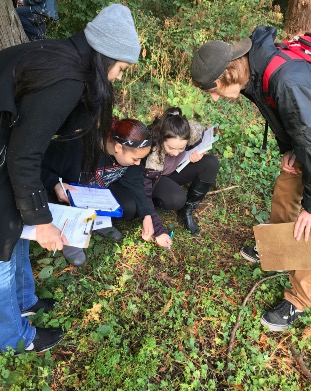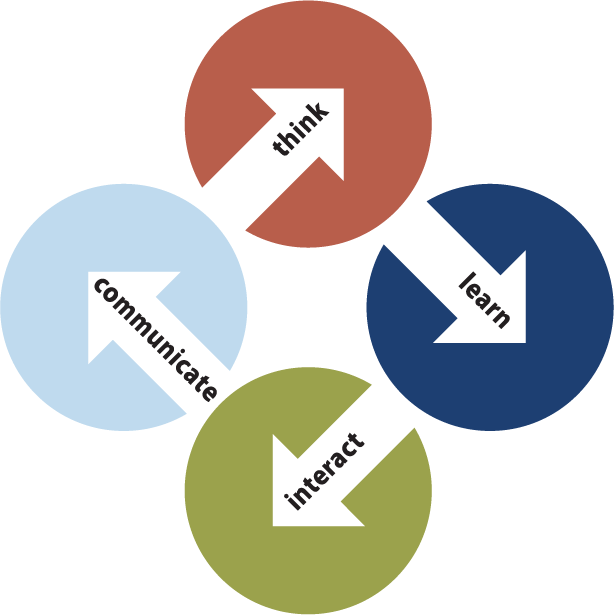Active Learning
Cascadia’s approach to teaching is based on research that shows how students really learn. We recognize that learning goes far beyond the boundaries of the traditional lecture paradigm. In addition to highlighting group projects and hands-on assignments in all of our courses, we are committed to pioneering innovative models that reflect the depth and complexity of subject matters.

Learning Outcomes
Any Cascadia student can tell you the 4 outcomes that guide us: Think, learn, interact, and communicate. Inside and outside the classroom, students, faculty, administrators, and staff use these outcomes as goals in learning, decision making, and actions.
Decades of research have shown that students learn most from teachers who emphasize active, collaborative learning. As a lifelong habit, pursuing these outcomes encourages personal growth, enhances productive citizenship, and fosters individual and cooperative learning.

Think critically, creatively, and reflectively
Reason and imagination are fundamental to problem solving and critical examination of self and others.
- Create, integrate, and evaluate ideas across a range of contexts, cultures, and areas of knowledge
- Recognize and solve problems using creativity, analysis, and intuition
- Examine your own attitudes, values, and assumptions, and reflect on their implications and consequences
Learn actively
Learning is a personal, interactive achievement that results in greater expertise and a more comprehensive understanding of the world.
- Develop expertise, broaden perspectives, and deepen understanding of the world by seeking information and engaging in meaningful practice
- Construct meaning from expanding and conflicting information
- Engage in learning, both individually and with others, through reading, listening, observing, and doing
- Take responsibility for learning
Interact in diverse and complex environments
Successful negotiation through our increasingly complex, interdependent, and global society requires both knowledge and awareness of others and enhanced interaction skills.
- Build interpersonal skills through knowledge of diverse ideas, values, and perspectives
- Collaborate with others in complicated, dynamic, and ambiguous situations
- Practice civility, empathy, honesty, and personal responsibility
Communicate with clarity and originality
The ability to exchange ideas and information is essential to personal growth, productive work, and societal vitality.
- Organize and articulate ideas for a range of audiences and purposes
- Use written, spoken, and symbolic forms to convey concepts creatively
- Use technology to gather, process, and communicate information
Course Structures for Active Learning
Learning Communities
A learning community is a pairing of courses that is team-taught by two instructors from different disciplines that allows students to develop skills and discover connections on multiple levels and across subject areas.
Hard Linked Courses
A combination between a cohort and a learning community. The same students take one course from one instructor and then a second course from a different instructor. The two instructors develop assignments that help students make connections between the two disciplines.
Soft Linked Courses
Two courses tackling different subject matters. Students enrolled in one course interact on specific assignments with students enrolled in the other course and see how the two disciplines relate.
Simultaneous Soft Linked Courses
Two distinct classes held simultaneously that interact with one another on occasion.